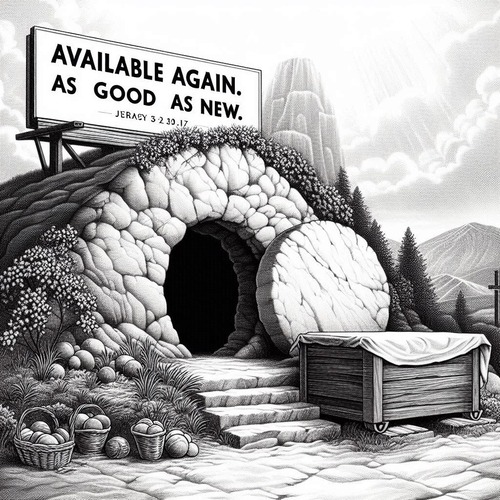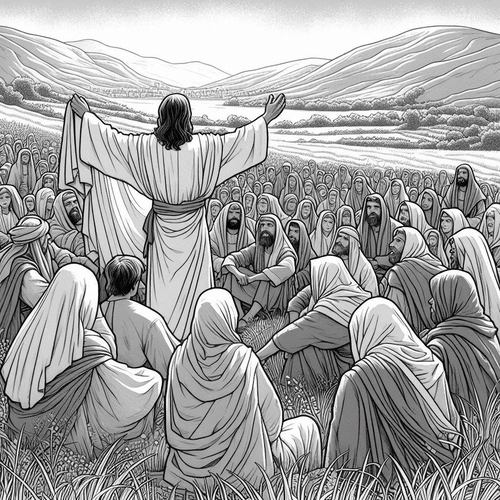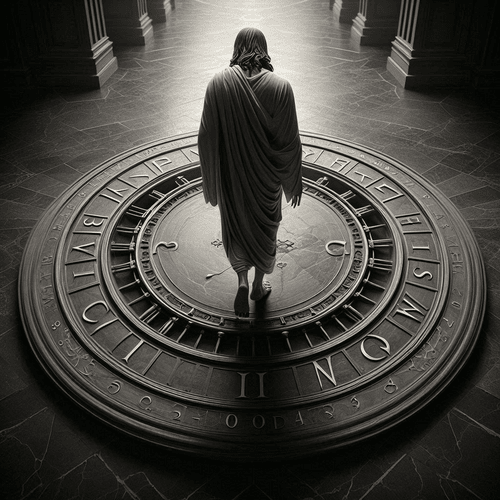Objections to the Resurrection Rebutted: Truth Will Rise!
Objections to the Resurrection Rebutted: Jesus’ resurrection remains one of the most scrutinized and polarizing events in human history. Sceptics raise myriad objections to rationalize away this central tenet of the Christian faith. Yet the challenges, however persistent, all crumble under the compelling evidence that undergirds the resurrection narrative. Check out for yourself:
- The Gap in History: Critics point to the time between Jesus’ resurrection and the penning of the Gospels as a reason to doubt their reliability.
The Rebuttal: This concern does not account for the strong oral traditions of the era. Oral tradition was highly valued in ancient Near Eastern culture. Early Christians meticulously preserved and shared detailed narratives of Jesus’ life and teachings. Furthermore, the Pauline epistles, which date back to just decades after Jesus’ death, corroborate essential details of the resurrection, offering significant contemporary support. Moreover, keep in mind many historical accounts are written years, even centuries, after the events they describe. That doesn’t undermine their reliability. The key is the reliability of the sources and the consistency of the accounts.
- Divergent Gospel Accounts: Variations in the resurrection narrative across the Gospels have often been cited as indicating the unreliability of the gospel accounts.
The Rebuttal: In reality, these differences are far from critical. A closer look reveals these accounts may easily be harmonized, and the minor variations in secondary details do not detract from the consistent central message—that of the resurrection.
Imagine four reporters attend the same high-profile soccer match to cover it for their respective media outlets. Though their individual accounts will not be identical, the core facts they report will remain the same—the final score, which team emerged victorious, or the key goals scored. The complementary details may however vary. In fact, if their accounts mirrored each other with absolute precision, we would most likely suspect potential collusion or copycat reporting.
The variations we find across the resurrection narratives in the four gospel accounts are precisely what we should expect from authentic eyewitness records. Though they report the same central historical fact—the resurrected Christ’s appearances to His disciples—each gospel relays distinct personal perspectives and complementary details.
- The Search for Natural Explanations: To rationalize the resurrection, some propose natural explanations such as the swoon theory—that Jesus hadn’t died, but had merely swooned—or that those who claimed to be eyewitnesses had hallucinations.
The Rebuttal: These theories crumble under close examination. The swoon theory, for instance, does not explain how a severely beaten and crucified Jesus could have moved the heavy stone and convinced hundreds of witnesses He was gloriously resurrected. As for mass hallucinations, it is virtually impossible for hundreds of people to simultaneously hallucinate the exact same coherent series of events and experiences. Hallucinations are highly subjective, profoundly personal experiences. By their very nature, hallucinations are random, inconsistent occurrences—not shared experiences. For the multi-source biblical accounts to arise from mass hallucination, hundreds of people from vastly different backgrounds and perspectives would have had to see, hear, touch, converse with and interact in precisely the same way with an imagined resurrected Jesus over a period of 40 days. The odds of such a collective, sustained, multi-sensory hallucination are infinitesimally small.
These theories fail to coherently account for the dramatic transformation of the disciples, the empty tomb, and the birth of the church in the very hostile environment of ancient Jerusalem and could easily be falsified were they fictitious.
- The Quest for External Validation: The scarcity of contemporary non-Christian references to the resurrection is another objection often cited.
The Rebuttal: Critics demand an unrealistic burden of proof—they accept other ancient historical accounts on far less cumulative historical attestation than what exists for the resurrection. There are numerous important non-Christian references to the origins of Christianity, Jesus’s execution, the disciples’ belief in the resurrection, etc. These lend powerful external validation. The scarcity of external validation available for the resurrection does not negate its historical occurrence. The early Christian documents and later historical records affirm the early declaration of Jesus’ resurrection, emphasizing its profound influence and acceptance. While it’s true there are few contemporary non-Christian references to the resurrection, this isn’t surprising given the historical context. However, the fact that Christianity spread rapidly in a hostile Roman Empire, despite intense persecution, suggests something extraordinary had happened.
- The Circular Reasoning Conundrum: Critics argue one has to believe in the resurrection to accept the Gospels’ credibility, or vice versa, which amounts to circular reasoning.
The Rebuttal: The critics say we have to first believe the gospels are completely true before we can believe their account of Jesus’s resurrection. But that’s not true. The resurrection account can be evaluated based on external historical evidence, internal consistency, the reliability of the gospel authors, and other factors—independent of first needing to assume the entire gospels are a priori 100% truthful. Independent evidence, including early doctrinal formulations and archaeological discoveries, substantiates the resurrection actually happened. Besides, belief in the resurrection isn’t necessary to accept the Gospels’ credibility. Many scholars who don’t believe in the resurrection still regard the Gospels as valuable historical documents.
- The Myth-Making Hypothesis: Some sceptics claim the resurrection narrative evolved out of a legend.
The Rebuttal: These critics overlook the careful preservation of oral traditions by early Christians. Moreover, the swift expansion of Christianity demanded the precise conservation of core doctrines, reducing the likelihood of mythological additions. The resurrection narrative doesn’t bear the hallmarks of myth. It was recorded too soon after the events to have evolved into legend. Furthermore, the disciples had nothing to gain and everything to lose by perpetuating a false resurrection story. The resurrection accounts also contain certain unflattering or unexpected details that ancient myth-makers likely would have omitted or changed if they were making up the story. In the gospel accounts, the first witnesses to the empty tomb and resurrection are women (Mark 16:1-8, Luke 24:1-10, etc). However, in the patriarchal Jewish culture of that day, the testimony of women was viewed as unreliable and inadmissible in court. If you were fabricating a myth, you would likely make the first witnesses male to lend more credibility. The archaeological evidence, such as the early dating of the Gospel of John, also counters the notion of significant legendary distortion.
- The Disciples’ Alleged Deception: Another claim is that the disciples concocted the resurrection story.
The Rebuttal: The early Christians endured persecution and martyrdom for their convictions. This casts doubt on the idea of a premeditated deception. It’s hard to imagine they would have done this for a lie. Their powerful transformation from cowards to bold proclaimers also militates strongly against their concocting the resurrection narrative. Additionally, the profound changes in individuals such as Thomas and Paul lend credibility to their accounts that they’d encountered the risen Christ.
Objections to the Resurrection Rebutted: In summary, while scepticism and doubt are natural responses to extraordinary claims, the resurrection of Jesus Christ withstands firm scrutiny. The evidence for the resurrection is robust, consistent, and compelling. It invites us not to a blind faith, but to a reasoned belief, grounded in historical facts and eyewitness accounts. Truth is not afraid of questions, and the resurrection narrative, the cornerstone of our faith, can withstand the toughest scrutiny.
Related Reads
Editor's Pick

Christian Obedience: God’s Empowerment or an Act of Our Will?
Every Christian knows the struggle. You’re fighting a besetting sin—again. You’ve resolved to do better—again. And you’re wondering: Should I [...]

The Throne-Room Vision: Who Did Isaiah See?
The scene is unforgettable: Isaiah stands in the temple, and suddenly the veil between heaven and earth tears open. He [...]

The Angel of the Lord: Can We Be Certain It Was Christ All Along?
Throughout the Old Testament, a mysterious figure appears: the Angel of the LORD. He speaks as God, bears God’s name, [...]
SUPPORT US:
Feel the Holy Spirit's gentle nudge to partner with us?
Donate Online:
Account Name: TRUTHS TO DIE FOR FOUNDATION
Account Number: 10243565459
Bank IFSC: IDFB0043391
Bank Name: IDFC FIRST BANK






